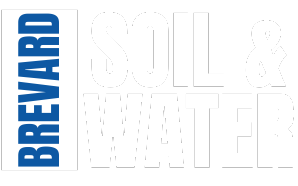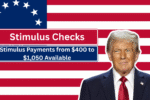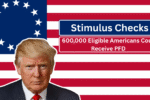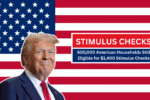In 2025, the Internal Revenue Service (IRS) is issuing up to $1,500 in stimulus payments to eligible Americans who missed out on the third round of Economic Impact Payments (EIPs) in 2021. These payments are part of the Recovery Rebate Credit (RRC) initiative and are being distributed automatically via direct deposit or paper checks.
Who Is Eligible?
The $1,500 payments are intended for individuals who did not receive the full amount of the third stimulus payment in 2021 and did not claim the Recovery Rebate Credit on their 2021 tax returns. Eligibility criteria include:
- Non-Claimants of RRC: Individuals who did not claim the RRC on their 2021 tax returns.
- Income Limits: For single filers, the adjusted gross income (AGI) limit is $80,000; for married couples filing jointly, the limit is $160,000.
- Tax Filing Requirement: Taxpayers must have filed a 2021 tax return but either left the RRC field blank or entered $0 when they were eligible for the credit.
How to Receive the Payment
The IRS is automatically issuing these payments based on 2021 tax return information. No additional action is required for most eligible individuals. Payments are sent via direct deposit to the bank account on file or as paper checks to the address listed on the tax return.
Payment Schedule
The distribution of the $1,500 stimulus payments began in December 2024, with most recipients expected to receive their funds by late January 2025. The exact timing depends on the IRS’s processing schedule and the method of payment delivery.
Action Steps for Non-Filers
Taxpayers who did not file a 2021 tax return can still claim the Recovery Rebate Credit by filing their return by April 15, 2025. Even individuals with minimal or no income, who are typically not required to file, should file a 2021 return to receive the credit.
How to Check Your Payment Status
To check the status of your payment, use the IRS’s “Get My Payment” tool available on their official website.
Beware of Scams
The IRS warns about scams involving fraudulent text messages and calls regarding stimulus checks. Always verify information through official IRS channels and be cautious of unsolicited communications requesting personal information.




